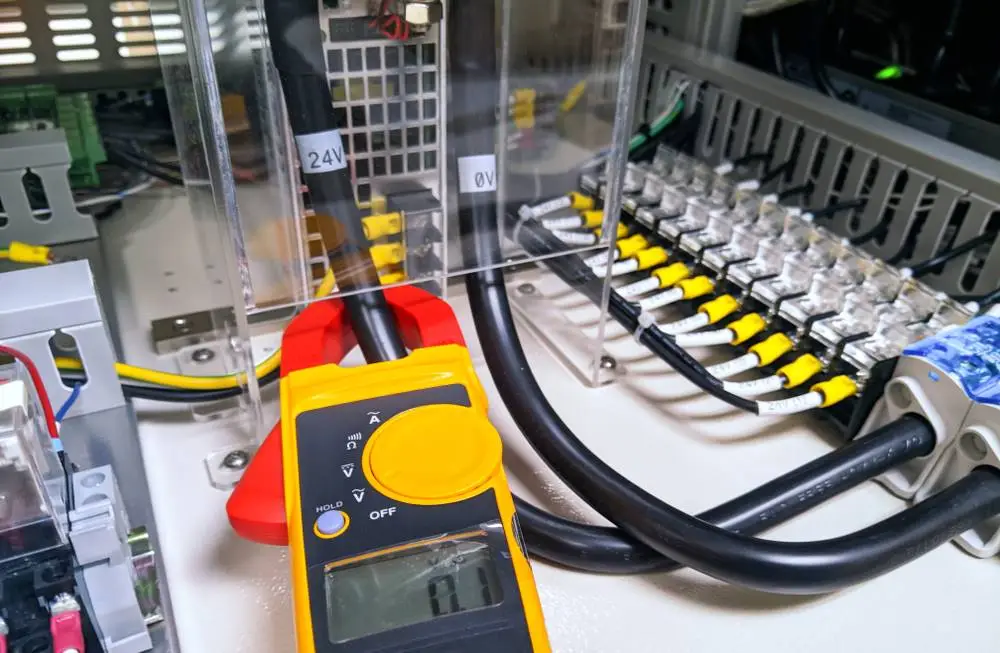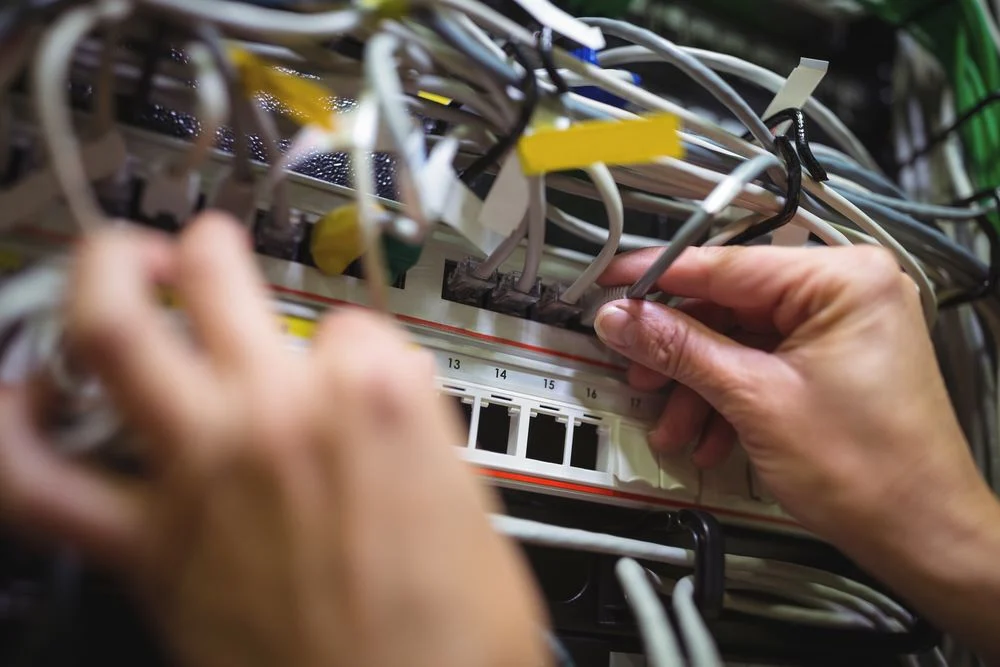One of the best reasons to hire NY Engineers is that our experts will provide you with accurate calculations regardless of the natures of the project.
Our technical professionals have a vast experience in the field of wire sizing. They will not take much time to calculate the amperage and related wire size.
NYE won’t take much time to do the work. You can get timely calculations without any errors.

If you have gone through the process of buying an electrical wire, then you would have noticed that electrical wires come in a variety of sizes and types. If you want to make the right choice, you must know your intended purpose. NY Engineers determine all the intended objectives within a circuit and only recommend a size that will cater to the demand.
Our professional staff has loads of experience in wire sizing services and they have worked in commercial, residential and industrial sectors. NY Engineers can provide you with all wire sizing services and calculations with accuracy. Our expert engineers will take care of all commercial and residential wire sizing as per the required standards.
We are one of the fastest growing MEP design firms in the construction industry. We pride ourselves on having a fast turnaround while providing cost effective solutions. We are licensed in 50 states and are your one stop shop for all MEP design needs.
We are licensed in all 50 states!
We design to the perfection
Enjoy our lightening fast turnaround
We have completed so far!
Our designs are approved by DOB in one go
The best service experience in the market
Whenever someone thinks about rewiring or extending a circuit or even in the case of new circuit installation, the wiring size should be appropriate. The technicians should make the new wiring, using conductors for wires. These conductors must have proper sizing to match the amperage of the circuit. We at NY Engineers make sure that the amperage rating fully matches the size of the wires to avoid any voltage drop.
The simple rule of thumb is that with the increase in the amperage of the circuit, the wire size will increase. This is important because the wires must tolerate the amount of heat that the current flow generates. If your electrician doesn’t take this point into consideration then the wire will melt. This melting of wires can also cause fires and explosions.
Several other factors also contribute to gauging the adequate circuit size or in other words the amperage of the circuit. There is a planned load on that circuit, its length, and the number of fixtures. As the electricians determine the amperage, they must use an adequate gauge to assess the size according to the circuit breaker amperage.
If you have gone through the process of buying an electrical wire then you would have noticed that electrical wires come in a variety of sizes and types. These variations are available to achieve different purposes. If you want to make the right choice, you must know your intended purpose. NY Engineers determine all the intended objectives within a circuit and only recommend a size that will cater to the demand.
Our professional technician will only use American Wire Gauge for the purpose of wire sizing. We must mention here that the meaning of wire gauge is the physical size of the wire which comes with some numerical designation. It runs in opposition to the conductors’ diameters. Therefore, if the wire gauge number is small then its diameter is going to be large.
Some of the common wire sizes include 2-gauge, 4-gauge, 6-gauge, 8-gauges, 10-gauge and 12-gauge. This is the size of the wire and it determines how much current can travel through this wire without damaging anything. Ampacity is the measure of electrical current and every wire gauge has a particular level of safe Ampacity.

For a regular NM wire, the amperage capacity is listed as follows:
Keep in mind that all these ratings are for regular copper cable with NM sheathing. However, there are various instances that these ratings differ. For instance, some homes or commercial buildings feature aluminum wires. These wires have their own Ampacity. Aluminum was very popular in the past because it has a higher expansion profile in pressure or load. But one of the major flaws of Aluminum was that it loosened ends and consequently caused fires.
Now we are not saying that aluminum wires are not safe for your facility. The primary reason behind that is Aluminum might last forever only if you don’t put excessive load on the circuit. However, electrical loads never remain the same and this is where copper wires come in very handy.
We need to consider the style of the wire. Some wires feature a solid conductor of copper while others come stranded. During the installation that involves the metal conduits if there are so many bends, the solid wire is not going to pull conveniently.
On the other hand, this solid wire is much easier for securing under screw terminals. These screw terminals are the same as those receptacles of standard switches. However, in regular usage, the conductors within the conduits will vary in gauge from 10 to 14 that is a solid conductor of copper.
Fuses and circuit breakers offer plenty of protection in case of an overload or overheating. But you must keep in mind that they don’t provide 100% protection either. Both the devices have a design where they can blow or trip upon detection of overloads. The tripping occurs before these wires can overheat but this doesn’t make them foolproof.
Guarding against the increasing amperage rating of any circuit must be your top priority. There is a reason behind that. Your electrical system will always remain at risk each time an appliance or a device tries to draw extra power from the circuit i.e. more than the gauge rating.
For instance, if you plug a heater that is of 20Amps within a circuit of 15-Amp with 14-gauge wiring then this entire setup will be at a significant amount of risk. If the circuit breaker doesn’t work as it should then the heater will extract more current as compared to the wires’ capacity. For this reason, the wires will melt down the insulation and will ignite the materials that are surrounding the wire.
However, there is no risk associated with plugging in appliances that have mild loads in heavy gauged circuits. The circuit will only draw the power needed and nothing more.
Any risk or danger is high in the case of using low-quality extension cords that are present in the residential setups. If you connect a heater with a lightweight extension cord using 16-gauge then there is a great risk of fire. A number of manufacturers don’t recommend using a heater with an extension cord. If you have to use a heater with an extension cord then you have to go for a heavy-duty, high-quality cord with a good rating of amperage. The amperage capacity of the wire must match with that of the appliance along with the circuit in which you plug it into.
|
Wire Use |
Rated Ampacity |
Wire Gauge |
|
Lamp cord and lighting with low voltage |
10Amps |
18-gauge |
|
Extension cables or cords |
13Amps |
16-gauge |
|
Lamps, light fixtures, and lighting runs |
15Amps |
14-gauge |
|
Receptacles, inbuilt ovens, 120V air conditioners, and water heaters |
20Amps |
12-gauge |
|
Clothes dryers, inbuilt ovens, 220V window air conditioners, water heaters |
30Amps |
10-gauge |
|
Cooktops |
45Amps |
8-gauge |
|
Electric furnaces, large |
60Amps |
6-gauge |
|
Electric furnaces, large electric water heaters, subpanels |
80Amps |
4-gauge |
|
Service and sub panels |
100Amps |
2-gauge |
|
Service entrance |
150Amps to 200Amps |
1/0-gauge |

For determining the service amperage we can start by having a look at the service cables outside and their entry into the panel. This will tell us that your facility is powered by 120V service or 240V one. You don’t have to measure the gauge of the wire to find this out.
In most of the cases, the actual type of the cable along with its size is present on the insulation of that cable. You can also go for rough measurements and estimates. If your electricians can see all the ends of the entrance cable then they can also take the diameter of the metal wire. If the brand or manufacturer of the wire or cable is known then very close speculation can be made by your serviceman.
This is where NY Engineers can assist you in big time. Our professional staff has loads of experience in wire sizing services and they have worked in commercial, residential and industrial sectors. This means that they know most of the brands and manufacturers and understand what measurements of their wirings are.
This will save you a lot of time finding all the sizes correctly. Nevertheless, we also crosscheck the accuracy of measurements in a safe manner. Our engineers do this by examining the external side of the cable just outside the panel. This technique is far safer and quicker.
382 NE 191st St , Suite 49674
Miami, Florida 33179276 5th Avenue, Suite 704 #904
New York, NY 10001